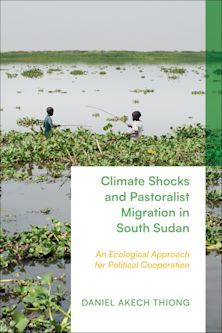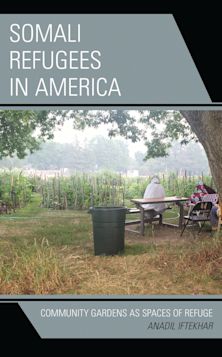- Home
- ACADEMIC
- African & Africana Studies
- Migration and Diaspora Studies
- The Internet and the Construction of the Immigrant Public Sphere
The Internet and the Construction of the Immigrant Public Sphere
The Case of the Cameroonian Diaspora
The Internet and the Construction of the Immigrant Public Sphere
The Case of the Cameroonian Diaspora
This product is usually dispatched within 3 days
- Delivery and returns info
-
Free US delivery on orders $35 or over
You must sign in to add this item to your wishlist. Please sign in or create an account
Description
The Internet has become a powerful medium for Africans in the Diaspora to meet for cross border dialogue. Cameroonians all over the world are using this tool for what the present study considers to be a public-sphere discourse. Cameroonians living in the United States and other nations use the Internet to discuss and debate the political, social, economic, and cultural aspects of the nationhood of Cameroon with the aim of seeking solutions to some of those pressing needs that confront the country.
This study builds on Habermas and other leading feminist authors' conceptualization of the democratic public sphere, central to Habermas' theory of communicative action. This study's theoretical framework incorporates elements of the African experience in order to examine the dominant, oppositional and parallel themes that arise from four Cameroonian websites just before the national presidential election in 2004. The methodology adapts Jager's critical discourse analytical (CDA) framework, which was deemed an appropriate methodology because it sought not only to analyze the linguistic component of the discourse in the four websites, but more importantly to examine the holistic structure of the discourse that is its history and context.
This study concludes that gender disparity existed in the dialogue between Cameroonian men and women. Cameroonian men were more dominant than the women in the discourse on the central themes involving the Cameroonian presidential election of 2004. The all-female website was more focused on the infrastructural development of Cameroon. Lastly, these findings suggest that future studies should focus on the ways that the Cameroonians and other Diasporic populations utilize the Internet to create alternative discursive spaces for political and social purposes.
Table of Contents
Part 2 List of Tables
Part 3 Foreword
Chapter 4 Introduction
Chapter 5 Overview of Related Literature
Chapter 6 Methodology
Chapter 7 Findings/Results
Chapter 8 Parallel Discourse
Chapter 9 Interpretation of Findings
Part 10 References
Part 11 Appendix
Product details
| Published | Oct 29 2007 |
|---|---|
| Format | Paperback |
| Edition | 1st |
| Extent | 100 |
| ISBN | 9780761837923 |
| Imprint | University Press of America |
| Dimensions | 9 x 6 inches |
| Publisher | Bloomsbury Publishing |































